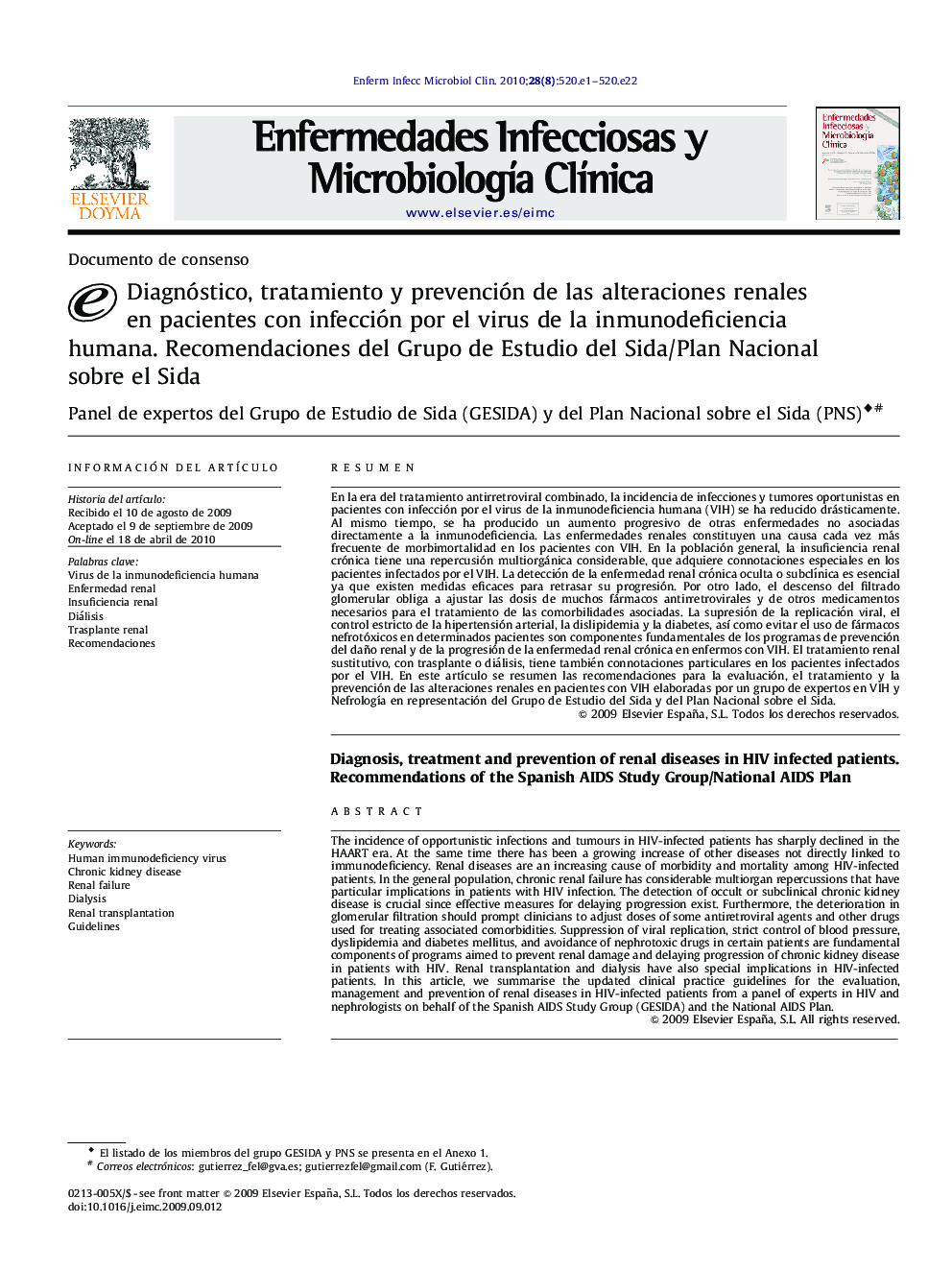| Article ID | Journal | Published Year | Pages | File Type |
|---|---|---|---|---|
| 3401787 | Enfermedades Infecciosas y Microbiología Clínica | 2010 | 22 Pages |
Abstract
The incidence of opportunistic infections and tumours in HIV-infected patients has sharply declined in the HAART era. At the same time there has been a growing increase of other diseases not directly linked to immunodeficiency. Renal diseases are an increasing cause of morbidity and mortality among HIV-infected patients. In the general population, chronic renal failure has considerable multiorgan repercussions that have particular implications in patients with HIV infection. The detection of occult or subclinical chronic kidney disease is crucial since effective measures for delaying progression exist. Furthermore, the deterioration in glomerular filtration should prompt clinicians to adjust doses of some antiretroviral agents and other drugs used for treating associated comorbidities. Suppression of viral replication, strict control of blood pressure, dyslipidemia and diabetes mellitus, and avoidance of nephrotoxic drugs in certain patients are fundamental components of programs aimed to prevent renal damage and delaying progression of chronic kidney disease in patients with HIV. Renal transplantation and dialysis have also special implications in HIV-infected patients. In this article, we summarise the updated clinical practice guidelines for the evaluation, management and prevention of renal diseases in HIV-infected patients from a panel of experts in HIV and nephrologists on behalf of the Spanish AIDS Study Group (GESIDA) and the National AIDS Plan.
Keywords
Related Topics
Life Sciences
Immunology and Microbiology
Microbiology
Authors
Panel de expertos del Grupo de Estudio de Sida (GESIDA) y del Plan Nacional sobre el Sida (PNS) Panel de expertos del Grupo de Estudio de Sida (GESIDA) y del Plan Nacional sobre el Sida (PNS),
